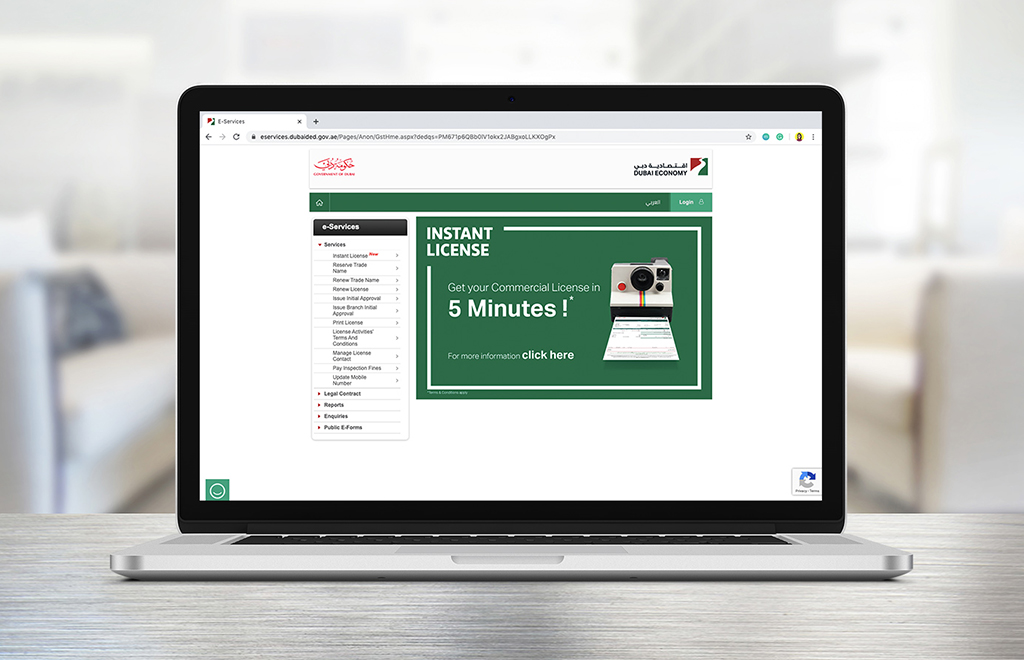The outbreak of the Coronavirus (COVID-19) pandemic has had an adverse impact on the global economy and is affecting businesses of all sizes and sectors. Organizations around the world are facing challenges, often related to economic downturns, such as supply chain disruption, reduction in revenue, increasing inventory level, business closures, delay in expansion and tightening cash and credit conditions.
Considering such economic uncertainties, entities need to carefully consider their circumstances and risk exposures, revisiting their strategic business plan and assessing the impact the outbreak may have on their financial reporting.
This article highlights certain key accounting and financial reporting implications that may arise as a result of COVID-19 in the preparation of financial statements as per the International Financial Reporting Standards for the annual or interim reporting periods ending in 2020.
1. Going Concern Assumption
IAS 1 Presentation of Financial Statements requires management to assess a company’s ability to continue as a going concern. The going concern assessment needs to be performed up to the date on which the financial statements are issued. There may be significant areas of uncertainty due to COVID-19 and it could be important to assess the anticipated effects and impact of new information.
Management should assess whether disruptions caused by COVID-19 will be prolonged, resulting in a reduced demand for their products and services, liquidity shortfalls, among other possible repercussions, thereby assessing the appropriateness of the use of the going concern basis. When management is aware of material uncertainties that cast a significant doubt on the entity’s ability to continue as a going concern, the entity should disclose those material uncertainties in the financial statements.
If it has decided to either liquidate or to cease trading, or the company has no realistic alternative but to do so it is no longer a going concern and the financial statements may have to be prepared on another basis, such as a liquidation basis.
2. Events after the Reporting Period
IAS 10 Events After the Reporting Period contains requirements for when adjusting events (those that provide evidence of conditions that existed at the end of the reporting period) and non-adjusting events (those that are indicative of conditions that arose after the reporting period) need to be reflected in the financial statements.
With respect to reporting periods ending on or before 31 December, 2019, there is a consensus that the effects of the COVID-19 outbreak are the result of events that arose after the reporting date. If management concludes the impact of non-adjusting events are material, the company is required to disclose the nature of the event and an estimate of its financial effect.
If it cannot be quantitatively estimated in a reliable manner, there still needs to be a qualitative disclosure, including a statement that it is not possible to estimate the effect. Management should also consider whether it is able to properly assess as a going concern, if it cannot reliably quantify the effect of non-adjusting events.
3. Fair Value Measurements
Fair value measurement (FVM) is the exit price of an asset or liability on the measurement date from the perspective of a market participant as specified in IFRS 13 Fair Value Measurement
.Considering the market volatility, a key question is what conditions and the corresponding assumptions were known or knowable to market participants at the measurement date and not at a future date. The events or transactions occurring after the measurement date are only adjusted for in FVM to the extent they provide additional evidence of conditions that existed at the measurement date.
IFRS 13 Disclosures requires companies to disclose the valuation techniques and the inputs used in the FVM as well as the sensitivity of the valuation to changes in assumptions. Disclosures are needed to enable users to understand whether COVID-19 has been considered for the purpose of FVM or not.
4. Impairment of Non-Financial Assets
IAS 36, Impairment of Assets ensures that a company’s assets are carried at a value that is not more than their recoverable amount (the higher of fair value less costs of disposal and the value in use) and requires companies to conduct impairment tests when there is an indication of impairment of an asset at the reporting date.
Companies will need to assess whether the impact of COVID-19 has potentially led to an asset impairment. For most companies, the economic effects are likely to trigger an impairment test for long-lived assets, as well as other asset groups. Estimates of future cash flows and earnings are likely to be significantly affected by direct or indirect factors. Ongoing identification, evaluation and re-evaluation are essential to understand the extent of the need for recognition and for what periods. Considering the uncertainty in the current environment, disclosure of key assumptions and judgements made in estimating recoverable amounts are important.
5. Lease Accounting
IFRS 16 Leases requires a lessee to recognise a right-of-use (ROU) asset representing its right to use the underlying leased asset and a lease liability representing its obligation to make lease payments.
Impairment to ROU could occur due to the consequences of the pandemic and the lessee must test its ROU assets for impairment and shall recognise impairment loss (if any) as per IAS 36.
In the current environment, lessees may be seeking rent concessions from lessors. This may take the form of reduced or free rent for a period, a deferral of rent or some other type of relief (e.g. fixed rent payments becoming variable). The accounting implications of an agreed change to rent will depend on whether or not the change was envisaged in the original lease agreement.
The IASB has issued an amendment to IFRS 16 to make it easier for lessees to account for COVID-19 related rent concessions. The changes to IFRS 16 are listed below:
- Provide lessees with an exemption from assessing whether a COVID-19 related rent concession is a lease modification, if the conditions stated in amendment are met.Requires lessees to disclose if the exemption is applied to all rent concessions, the nature of contracts to which it is applied and amount recognised as profit or loss to reflect the changes in lease payment.
- Requires lessees to apply the exemption retrospectively in accordance with IAS 8, Accounting Policies, Changes in Accounting Estimates and Errors but does not require them to restate prior period figures.
The amendment is effective June 1, 2020, but lessees can apply the amendment immediately in any financial statements (interim or annual) not yet authorized for issue.
6. Revenue Recognition
IFRS 15, Revenue from Contracts with Customers establishes the principles that an entity applies when reporting information about the nature, amount, timing and uncertainty of revenue and cash flows from a contract with a customer.
COVID-19 could affect the assumptions made by management in measuring the revenue from goods or services already delivered, particularly for variable consideration and for the anticipated outcome of contacts extending over multiple reporting periods.
For example, reduced demand could lead to an increase in expected returns, additional price concessions, reduced volume discounts, penalties for late delivery or a reduction in the prices that can be obtained by a customer. A company may also modify its enforceable rights or obligations under a contract with a customer such as granting a price concession in which it is necessary to consider whether the concession is due to the resolution of variability that existed at the contract’s inception or a modification that changes the parties’ rights and obligations.
7. Onerous Contracts
An onerous contract arises when the unavoidable costs of meeting the obligations under the contract exceed the benefits expected to be received. If an entity has a contract that is onerous, IAS 37 requires the entity to recognise and measure the present obligation under the contract as a provision.
The provision for onerous contracts could be triggered in situations such as a revenue contract containing penalties for non-performance or an increase in costs associated with fulfilling a customer contract. Hence, entities should review their contracts to determine if there are any terms that may relieve them from its obligations without paying compensation. Contracts that can be terminated without paying compensation to the other party do not become onerous as there is no obligation.
8. Valuation of inventories
Inventories are measured either at cost or net realisable value (NRV), whichever is lower. Given the uncertainties in the current economic environment, it would be challenging for entities to determine NRV at the balance sheet date and conclude that NRV will recover before the inventory is sold. Hence, entities should assess the significance of any write-downs and make appropriate disclosures in accordance with IAS 2.
Also, the entities may experience changes in production level due to COVID-19 and will need to use judgement in determining what constitutes abnormal production levels. In case of abnormally low production, an entity may need to review its costing of inventories to ensure unallocated fixed overheads are recognized in profit or loss in the period during which they are incurred.
9. Financial Instruments – Classification, measurement and expected credit loss assessment
The classification of financial assets under IFRS 9 Financial Instruments is based on-
a) The entity’s business model for managing the financial assets; and
b) Whether the contractual cash flows of the financial asset are solely payments of principal and interest.
COVID-19 can impact the classification of assets where the entity’s business model for managing financial assets might have changed and it must reclassify all affected financial assets.
The potential deterioration in credit quality of individuals and entities due to the COVID-19 pandemic will have a significant impact on the expected credit loss (ECL) measurement. IFRS 9 requires an entity to incorporate reasonable and supportable information about past events, current conditions and the forecast of future economic conditions into the assessment of expected credit losses (ECL) for financial assets. ECL applies to trade and other receivables, loans, debt securities, contract assets, lease receivable, loan commitments and financial guarantee contracts.
The measurement of expected credit losses should be based on:
a) The information that existed at the reporting date and that is available without undue cost or effort;
b) An unbiased and probability-weighted amount that is determined by evaluating a range of possible outcomes; and
c) The time value of money. Entities should provide transparent disclosure of the assumptions used to measure the ECL and provide sensitivity disclosures.
Whilst the COVID-19 outbreak represents one of the biggest challenges ever to the world economy, companies should evaluate the related accounting issues and disclosure considerations discussed above and must continuously adapt to new and uncertain market conditions.
 The World Travel and Tourism Council (WTTC), along with governments and health experts, developed action plans to aid in the recovery efforts for the industry. They have come up with a global safety stamp to recognise governments and companies around the world who have adopted policies and protocols that ensure the safety of consumers and travelers. They will also be publishing protocols for the Hospitality industry, Attractions, Outdoor Retail industry, Aviation industry, Airports, Short Term Rentals industry, Cruises, Tour Operators, Convention Centres and MICE, Car Rental industry and Insurance industries. For more information, visit https://wttc.org/COVID-19/SafeTravels-Stamp-and-Assets.
The World Travel and Tourism Council (WTTC), along with governments and health experts, developed action plans to aid in the recovery efforts for the industry. They have come up with a global safety stamp to recognise governments and companies around the world who have adopted policies and protocols that ensure the safety of consumers and travelers. They will also be publishing protocols for the Hospitality industry, Attractions, Outdoor Retail industry, Aviation industry, Airports, Short Term Rentals industry, Cruises, Tour Operators, Convention Centres and MICE, Car Rental industry and Insurance industries. For more information, visit https://wttc.org/COVID-19/SafeTravels-Stamp-and-Assets. organisations according to accepted international standards. They have launched a Safeguard label “to provide reassurance to partners, customers and employees that the entities carrying the label have undergone checks and audits of the preventive measures in place”, according to their site. Commonly used in the hospitality industry, it can also be given to shops, restaurants, and corporate buildings, or other confined spaces where people gather. It covers audits of facilities, processes, staff, and hygiene/cleaning. This certification is valid for six (6) months, and a reassessment needs to be conducted in order to be able to continue to keep the label. For more information, visit https://www.bureauveritas.com.au/newsroom/safeguard-assurance-program-bureau-veritas-australia-solution or https://www.bureauveritas.fr/besoin/label-bureau-veritas-safeguard.
organisations according to accepted international standards. They have launched a Safeguard label “to provide reassurance to partners, customers and employees that the entities carrying the label have undergone checks and audits of the preventive measures in place”, according to their site. Commonly used in the hospitality industry, it can also be given to shops, restaurants, and corporate buildings, or other confined spaces where people gather. It covers audits of facilities, processes, staff, and hygiene/cleaning. This certification is valid for six (6) months, and a reassessment needs to be conducted in order to be able to continue to keep the label. For more information, visit https://www.bureauveritas.com.au/newsroom/safeguard-assurance-program-bureau-veritas-australia-solution or https://www.bureauveritas.fr/besoin/label-bureau-veritas-safeguard. Tourism Quality (ICTE) to publish a series of specifications which in turn put in place guidelines and recommendations for reducing the risk of the spread of COVID-19 in its tourism sector. They have made these documents available for anyone to use on https://www.en.une.org/la-asociacion/sala-de-informacion-une/noticias/directrices-para-un-turismo-seguro.
Tourism Quality (ICTE) to publish a series of specifications which in turn put in place guidelines and recommendations for reducing the risk of the spread of COVID-19 in its tourism sector. They have made these documents available for anyone to use on https://www.en.une.org/la-asociacion/sala-de-informacion-une/noticias/directrices-para-un-turismo-seguro. further and came up with an assurance stamp for all establishments that adhere to the government’s safety standards. After a thorough verification and validation process, the stamp can be displayed to let all consumers know that they are entering a place that follows rigorous safety and hygiene measures. The stamp is valid for only two (2) weeks, further reassuring the public that as long as the stamp is displayed, the place they are entering continuously meets safety requirements.
further and came up with an assurance stamp for all establishments that adhere to the government’s safety standards. After a thorough verification and validation process, the stamp can be displayed to let all consumers know that they are entering a place that follows rigorous safety and hygiene measures. The stamp is valid for only two (2) weeks, further reassuring the public that as long as the stamp is displayed, the place they are entering continuously meets safety requirements.

 The World Travel and Tourism Council (WTTC), along with governments and health experts, developed action plans to aid in the recovery efforts for the industry. They have come up with a global safety stamp to recognise governments and companies around the world who have adopted policies and protocols that ensure the safety of consumers and travelers. They will also be publishing protocols for the Hospitality industry, Attractions, Outdoor Retail industry, Aviation industry, Airports, Short Term Rentals industry, Cruises, Tour Operators, Convention Centres and MICE, Car Rental industry and Insurance industries. For more information, visit
The World Travel and Tourism Council (WTTC), along with governments and health experts, developed action plans to aid in the recovery efforts for the industry. They have come up with a global safety stamp to recognise governments and companies around the world who have adopted policies and protocols that ensure the safety of consumers and travelers. They will also be publishing protocols for the Hospitality industry, Attractions, Outdoor Retail industry, Aviation industry, Airports, Short Term Rentals industry, Cruises, Tour Operators, Convention Centres and MICE, Car Rental industry and Insurance industries. For more information, visit  organisations according to accepted international standards. They have launched a Safeguard label “to provide reassurance to partners, customers and employees that the entities carrying the label have undergone checks and audits of the preventive measures in place”, according to their site. Commonly used in the hospitality industry, it can also be given to shops, restaurants, and corporate buildings, or other confined spaces where people gather. It covers audits of facilities, processes, staff, and hygiene/cleaning. This certification is valid for six (6) months, and a reassessment needs to be conducted in order to be able to continue to keep the label. For more information, visit
organisations according to accepted international standards. They have launched a Safeguard label “to provide reassurance to partners, customers and employees that the entities carrying the label have undergone checks and audits of the preventive measures in place”, according to their site. Commonly used in the hospitality industry, it can also be given to shops, restaurants, and corporate buildings, or other confined spaces where people gather. It covers audits of facilities, processes, staff, and hygiene/cleaning. This certification is valid for six (6) months, and a reassessment needs to be conducted in order to be able to continue to keep the label. For more information, visit  Tourism Quality (ICTE) to publish a series of specifications which in turn put in place guidelines and recommendations for reducing the risk of the spread of COVID-19 in its tourism sector. They have made these documents available for anyone to use on
Tourism Quality (ICTE) to publish a series of specifications which in turn put in place guidelines and recommendations for reducing the risk of the spread of COVID-19 in its tourism sector. They have made these documents available for anyone to use on  further and came up with an assurance stamp for all establishments that adhere to the government’s safety standards. After a thorough verification and validation process, the stamp can be displayed to let all consumers know that they are entering a place that follows rigorous safety and hygiene measures. The stamp is valid for only two (2) weeks, further reassuring the public that as long as the stamp is displayed, the place they are entering continuously meets safety requirements.
further and came up with an assurance stamp for all establishments that adhere to the government’s safety standards. After a thorough verification and validation process, the stamp can be displayed to let all consumers know that they are entering a place that follows rigorous safety and hygiene measures. The stamp is valid for only two (2) weeks, further reassuring the public that as long as the stamp is displayed, the place they are entering continuously meets safety requirements.













